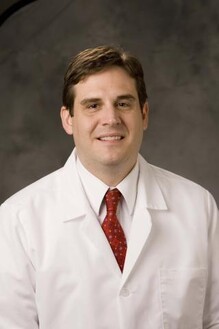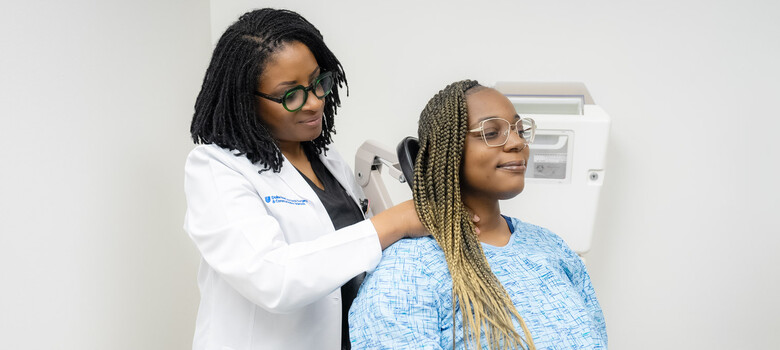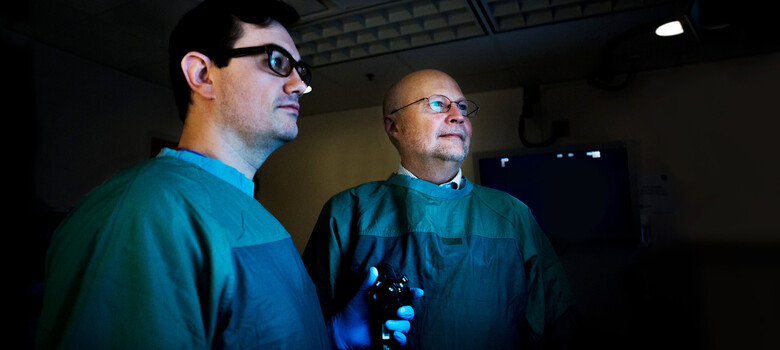Swallowing Therapy Helps Woman Overcome Dysphagia

Elizabeth Morgan sits outside on a bench in Burlington, NC.
Elizabeth Morgan, age 51, started having trouble swallowing just a few months after finishing cancer treatment. The Burlington, NC resident began choking on her food and couldn’t open her jaw wide enough to bite much of anything. She soon lost interest in eating, and her weight dropped dangerously low. In July 2020, she was diagnosed with dysphagia. Since starting a robust swallowing therapy regimen, Morgan is enjoying eating again.
A Difficult Health Journey
It all started with a bump. In 2016, a sore under Morgan’s tongue turned out to be squamous cell carcinoma -- a common type of oral cancer. After having surgery at Duke to remove the cancerous cells, Morgan did well for a few years. But the cancer came back in 2019. This time around, she needed another surgery, plus chemotherapy and radiation therapy.
An Unsettling Side Effect
It was few months later that Morgan started having trouble eating and drinking. Her husband Chris got nervous. “She was at the point where every time she tried to eat something, she would choke. It became difficult for her to take pills,” he said. Morgan’s oncologist referred her to Harrison Jones, PhD, a Duke speech pathologist.
Along with performing a swallow study, Dr. Jones administered a swallowing questionnaire called the EAT-10. The highest (and worst) score you can get is a 40. Morgan scored a 34. She was diagnosed with oropharyngeal dysphagia (swallowing disorder) and trismus (reduced oral opening, commonly called lockjaw). Both are common side effects of radiation therapy when used to treat the head and neck.
“Although radiation therapy is an effective treatment for head and neck cancers, we know that it can have a negative impact on the structures involved with swallowing over time,” Dr. Jones said. Separately, Morgan was also diagnosed with scleroderma, an autoimmune disease that makes her skin extremely tight and hard. It also restricted her jaw function.
Success from Customized Swallowing Therapy
Dr. Jones customized a therapy regimen that required about two hours per week of exercises that strengthened Morgan’s mouth and throat muscles and gently stretched her jaw muscles. Months later, her hard work is paying off. Morgan’s most recent EAT-10 score dropped to 12, and she has noticed a huge difference. “I’ve had little to no choking when I’m eating. Everything is so much better. I still can’t open my mouth all the way, but I enjoy eating a lot more because I’m not as afraid of choking.”
Seek Care for Swallowing Difficulty
According to Dr. Jones, Morgan’s commitment to her weekly exercises played a huge role in her success. That will come in handy, since she will need to continue maintenance therapy. People with similar symptoms should see a speech pathologist as soon as possible, Dr. Jones said, since symptoms tend to worsen over time.
“Swallowing is really important for the quality of our life. Eating is a huge part of the human experience. Swallowing disorders impact our ability to engage in life and be with our friends and families,” Dr. Jones said. “Research suggests that we can do more when we get involved earlier.”



